






Restorations Health Care
Verified Center
This provider's information has been quality-checked by Recovery.com's Research Team for accuracy and completeness, including center verification through appropriate third-party organizations.
Treatment Focus
This center treats substance use disorders and co-occurring mental health conditions. Your treatment plan addresses each condition at once with personalized, compassionate care for comprehensive healing.
Primary Level of Care
Offering intensive care with 24/7 monitoring, residential treatment is typically 30 days and can cover multiple levels of care. Length can range from 14 to 90 days typically.
Treatment Focus
This center treats substance use disorders and co-occurring mental health conditions. Your treatment plan addresses each condition at once with personalized, compassionate care for comprehensive healing.
Primary Level of Care
Offering intensive care with 24/7 monitoring, residential treatment is typically 30 days and can cover multiple levels of care. Length can range from 14 to 90 days typically.
Provider's Policy
Taking the first step towards addiction recovery is often the hardest part of the process. At Restorations Health Care, our addiction specialists strive for the highest quality of care and are here to change lives for the better.
Restorations Health Care
Restorations Health Care
About Restorations Health Care
Located just minutes from Hollywood and the fantastic beaches of Huntington and Newport, Restorations Health Care provides detox, residential, and outpatient treatment that empowers clients to achieve lasting recovery from alcohol and substance use disorders. They provide both evidence-based and experiential therapies, all with the mission of ending the cycle of addiction and laying the foundation for an enjoyable future without drugs or alcohol.
A Safe Environment to Heal
No two treatment plans are alike at Restorations Health Care. For each client, the team uses a tailored combination of evidence-based, experiential, 12-Step, and medical assistance to aid recovery. Caring staff provide a safe option to help alleviate withdrawal symptoms during detox. After detox, clients then immerse themselves in the therapeutic community. Psychotherapy in 1-on-1 sessions creates a safe environment for digging deep, uncovering dysfunction, and treating co-occurring disorders like depression, anxiety, post-traumatic stress disorder (PTSD), and trauma. Popular forms of psychotherapy at Restorations Health Care include cognitive behavioral therapy (CBT) and dialectical behavioral therapy (DBT). Group therapy invites peer education, joint learning, and positive feedback. Family therapy helps clients deal with negative patterns in close relationships and familial circumstances. Their 12-Step program encourages positive peer engagement, self-esteem building, and relapse prevention.
Beyond Traditional Talk Therapy
A high priority at Restorations Health Care is that clients be able to enjoy life again. In addition to evidence-based treatment methods, they encourage clients to participate in experiential therapies, from acting out traumatic events or problems in a safe environment to climbing a mountain and camping with a group of people. Animal-assisted therapy helps clients find a sense of connection and purpose again, and get past relational roadblocks to reconnect with the people around them. Volunteering is not only a great way to feel the joys of giving back to others, but also a great opportunity to do sober and social activities; Restorations Health Care clients can help at homeless shelters, soup kitchens, and other nearby non-profit organizations.
Preparation for Ongoing Success
The Restorations Health Care team collaborates with each client to arrange an aftercare plan for ongoing success in all areas of life. Clients leave treatment with a detailed plan complete with the contacts and resources needed to continue along the road of recovery—like medical appointments, local therapeutic resources, 12-Step support groups, sober or transitional living, or any necessary means of continued support. Aftercare also includes follow-up calls between staff and clients.
The Comforts of Home and More
Fantastic beaches are within walking distance of Restorations Health Care’s home-like environment. Clients reside in shared bedrooms and shared bathrooms, and have plentiful communal space inside to relax or play pool. Outside, clients enjoy a swimming pool, patio with a firepit, grill, and green space.
Highlights from the Center
Highlights
These highlights are provided by and paid for by the center.
1-on-1 Counseling
Customized Treatment Plans
Perfect for Professionals
Center Overview
Treatment Focus
This center treats substance use disorders and co-occurring mental health conditions. Your treatment plan addresses each condition at once with personalized, compassionate care for comprehensive healing.
Joint Commission Accredited
The Joint Commission accreditation is a voluntary, objective process that evaluates and accredits healthcare organizations (like treatment centers) based on performance standards designed to improve quality and safety for patients. To be accredited means the treatment center has been found to meet the Commission's standards for quality and safety in patient care.
Insurance Accepted
Cash Pay Rates
Estimated Cash Pay Rate
Center pricing can vary based on program and length of stay. Contact the center for more information. Recovery.com strives for price transparency so you can make an informed decision.
Meet Your Care Team
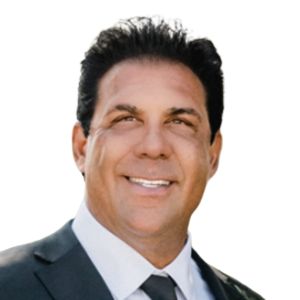
Walt Y.
CEO/Founder

Lacey L.
Clinical Director
MA in Psychology, Marriage & Family Therapy
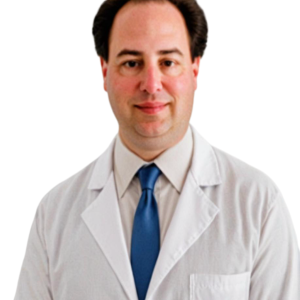
Dr. Aronow
Medical Director/Addictionologist
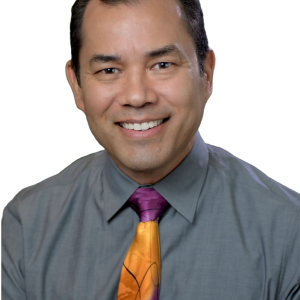
Dr. Portales
Doctor
Board Certified Osteopathic Physician

Karla C.
Care Coordinator
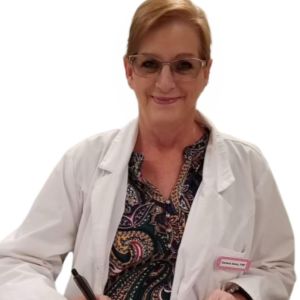
Darlene D.
Nurse Practitioner
NP

Danielle R.
Licensed Vocational Nurse
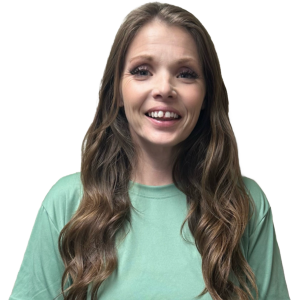
Dani T.
SUDCC II
CADC II

Greg G.
Director of Admissions
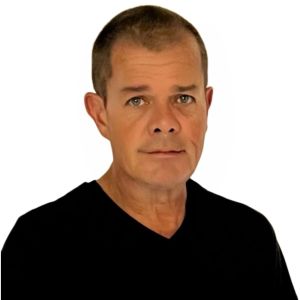
Michael O.
Admissions
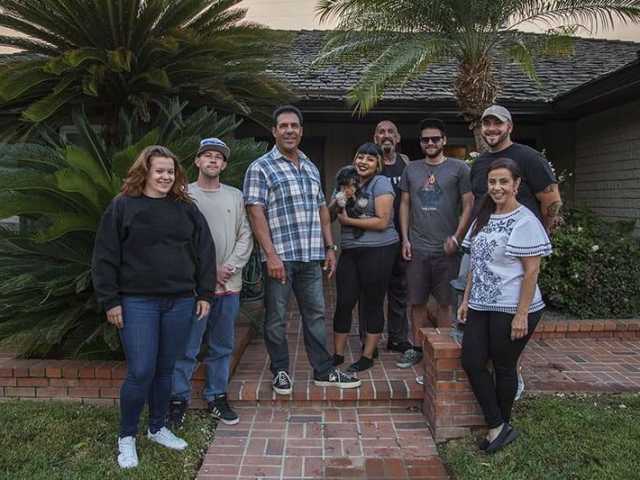



Levels of Care






Your Care Options
Specializations
Veterans
Patients who completed active military duty receive specialized treatment focused on trauma, grief, loss, and finding a new work-life balance.
Twelve Step
Incorporating spirituality, community, and responsibility, 12-Step philosophies prioritize the guidance of a Higher Power and a continuation of 12-Step practices.
Co-Occurring Disorders
A person with multiple mental health diagnoses, such as addiction and depression, has co-occurring disorders also called dual diagnosis.
Drug Addiction
Drug addiction is the excessive and repetitive use of substances, despite harmful consequences to a person's life, health, and relationships.
Chronic Relapse
Consistent relapse occurs repeatedly, after partial recovery from addiction. This condition requires long-term treatment.
Opioids
Opioids produce pain-relief and euphoria, which can lead to addiction. This class of drugs includes prescribed medication and the illegal drug heroin.
Alcohol
Using alcohol as a coping mechanism, or drinking excessively throughout the week, signals an alcohol use disorder.
Who We Treat
Veterans
Patients who completed active military duty receive specialized treatment focused on trauma, grief, loss, and finding a new work-life balance.
Men and Women
Men and women attend treatment for addiction in a co-ed setting, going to therapy groups together to share experiences, struggles, and successes.
Young Adults
Emerging adults ages 18-25 receive treatment catered to the unique challenges of early adulthood, like college, risky behaviors, and vocational struggles.
Executives
Executive treatment programs typically directly support the needs of people who manage businesses and may provide flexible schedules and office space to allow work during treatment.
Midlife Adults
For adults ages 40+, treatment shifts to focus on the unique challenges, blocks, and risk factors of their age group, and unites peers in a similar community.
Professionals
Busy, high-ranking professionals get the personalized treatment they need with greater accommodations for work, privacy, and outside communication.
Approaches
Twelve Step
Incorporating spirituality, community, and responsibility, 12-Step philosophies prioritize the guidance of a Higher Power and a continuation of 12-Step practices.
Experiential
Expressive tools and therapies help patients process past situations, learn more about themselves, and find healing through action.
Evidence-Based
A combination of scientifically rooted therapies and treatments make up evidence-based care, defined by their measured and proven results.
Therapies
Stress Management
Patients learn specific stress management techniques, like breathing exercises and how to safely anticipate triggers.
1-on-1 Counseling
Patient and therapist meet 1-on-1 to work through difficult emotions and behavioral challenges in a personal, private setting.
Family Therapy
Family therapy addresses group dynamics within a family system, with a focus on improving communication and interrupting unhealthy relationship patterns.
Adventure Therapy
This experiential approach uses the physical and emotional challenges of outdoor activities as tools for personal growth.
Twelve Step Facilitation
12-Step groups offer a framework for addiction recovery. Members commit to a higher power, recognize their issues, and support each other in the healing process.
Art Therapy
Visual art invites patients to examine the emotions within their work, focusing on the process of creativity and its gentle therapeutic power.
Solution Focused, Goal-Oriented Therapy
A quick goal-oriented therapy that helps patients identify their current and future goals, find out how to achieve them, and empower future problem-solving.
Substances We Treat
Cocaine
Cocaine is a stimulant with euphoric effects. Agitation, muscle ticks, psychosis, and heart issues are common symptoms of cocaine abuse.
Prescription Drugs
It's possible to abuse any drug, even prescribed ones. If you crave a medication, or regularly take it more than directed, you may have an addiction.
Benzodiazepines
Benzodiazepines are prescribed to treat anxiety and sleep issues. They are highly habit forming, and their abuse can cause mood changes and poor judgement.
Ecstasy
Ecstasy is a stimulant that causes intense euphoria and heightened awareness. Abuse of this drug can trigger depression, insomnia, and memory problems.
Co-Occurring Disorders
A person with multiple mental health diagnoses, such as addiction and depression, has co-occurring disorders also called dual diagnosis.
Psychedelics
Hallucinogenic drugs—like LSD—cause euphoria and increased sensory experiences. When abused, they can lead to depression and psychosis.
Drug Addiction
Drug addiction is the excessive and repetitive use of substances, despite harmful consequences to a person's life, health, and relationships.
Chronic Relapse
Consistent relapse occurs repeatedly, after partial recovery from addiction. This condition requires long-term treatment.
Languages
Aftercare
Care Designed for Your Needs
Personal Amenities
Amenities
Special Considerations
Young Adults Program
Programs for young adults bring teens 18+ together to discuss age-specific challenges, vocational and educational progress, and successes in treatment.
Gender-specific groups
Patients in gender-specific groups gain the opportunity to discuss challenges unique to their gender in a comfortable, safe setting conducive to healing.
Couples program
Using gentle clinical care, therapists guide patients and their partner through guided sessions to address issues and work towards lasting solutions.






